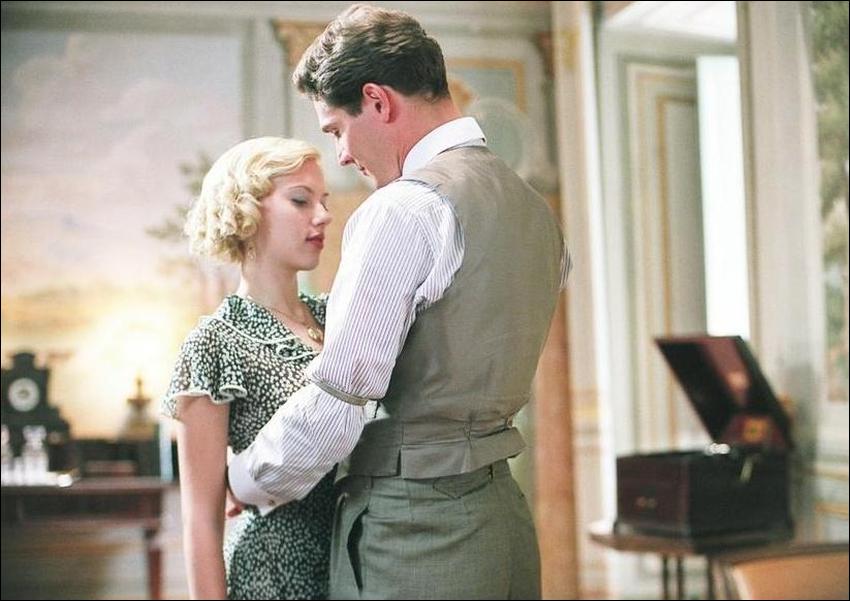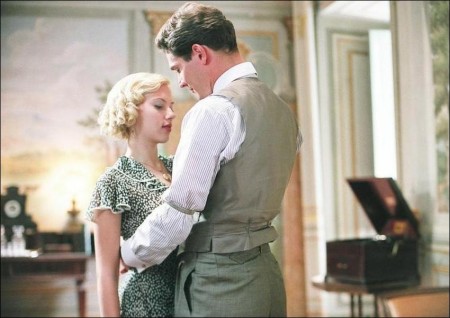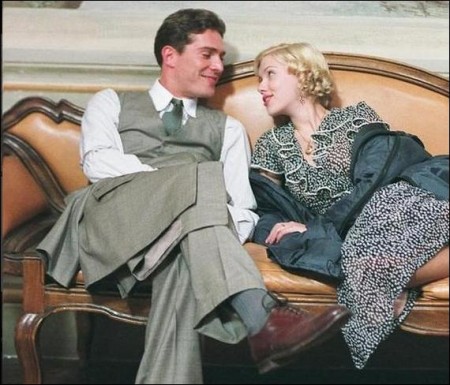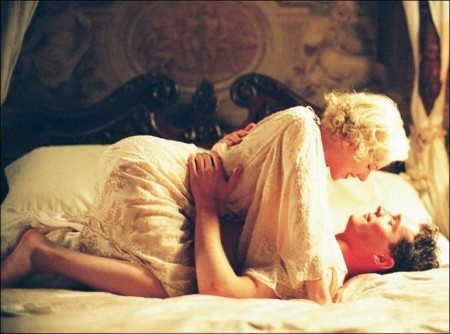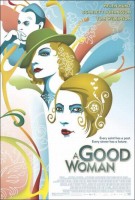Tagline: Every saint has a past. Every sinner has a future.
Set in the 1930s on the beautiful Italian Riviera, A Good Woman is an elegant, witty, romantic comedy based on Oscar Wilde’s “Lady Windermere’s Fan.” A young couple’s marriage is put in jeopardy by high-society gossip of an affair blossoming. Robert Windermere (Mark Umbers) is accused with providing a secret allowance for Mrs. Erlynne (Helen Hunt), a vampish older woman of ill repute, whilst his wife Meg Windermere (Scarlett Johansson), courts the attention of Lord Darlington (Stephen Campbell Moore), a notorious playboy.
Set in the 1930s on the beautiful shores of the Italian Riviera, Lions Gate Films’ “A Good Woman” follows the seductive Mrs. Erlynne (Hunt), scorned by many as a ‘woman of ill repute,’ leaves New York for the Amalfi coast, where she hopes to find a new ‘patron’ among the vacationing aristocrats.
The mean-spirited gossip stirred up by Mrs. Erlynne’s arrival isn’t enough to dissuade the jovial, kind-hearted Lord Augustus (Wilkinson) from falling in love with her. But Mrs. Erlynne has already set her sights on the married Robert Windermere (Mark Umbers), a wealthy young American who falls quickly under her spell.
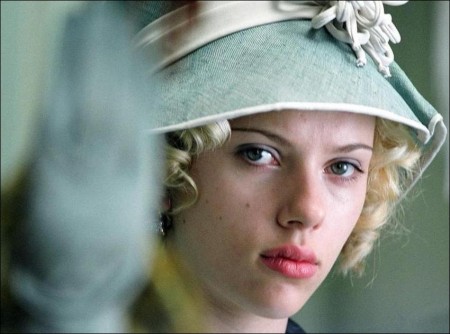
Windermere’s faithful wife, Meg (Johansson), is herself distracted by the flirtatious overtures of Lord Darlington (Stephen Campbell Moore), a notorious playboy. But when she learns of her husband’s blossoming affair, Meg resorts to drastic measures, with unexpected consequences for everyone involved…
Brimming with sumptuous locales and sweeping romance, “A Good Woman” is a sophisticated ode to Wilde’s legendary wit and wisdom, beautifully directed by Mike Barker from a sparkling script by Howard Himelstein.
About the Production
A tale of scandal, gossip and the vagaries of love, Lionsgate’s A Good Woman is an elegant period comedy based on Oscar Wilde’s play, “Lady Windermere’s Fan.” A hit when it premiered on the London stage in 1892, the play has since become a classic, helping cement Wilde’s reputation as one of the 19th century’s best writers. Now director Mike Barker and screenwriter Howard Himelstein have refashioned Wilde’s story into a sparkling romantic comedy set on Italy’s Amalfi coast, with the aim of bringing Wilde’s legendary wit and high sense of style to today’s audiences.
“I’ve always loved the play, especially Wilde’s language,” says Barker. “He’s so cynical and modern, and he tells his stories in such a sharp, satirical way. You often find yourself feeling a little guilty for laughing.”
“Aside from William Shakespeare, Wilde is probably the most quotable writer of the past 500 years,” says Himelstein. “Adapting the play was an opportunity to bring back the witty, romantic banter to movies that we haven’t seen since the days of Ernst Lubitsche and Preston Sturges.”
As in the play, Barker’s version follows Mrs. Windermere, a naïve, newly married young woman, who is thrown into turmoil when she hears gossip about her husband’s alleged affair with an older woman, Mrs. Erlynne. Her reaction sets off a series of misunderstandings and deceptions that threatens to throw her entire social world into chaos.
While the play is inextricably tied to the mores of its day, Barker believes that its themes will resonate with contemporary audiences. “This story is all about perception, which is why it’s so relevant today,” he says. “We live in an age of celebrity and reality television shows. Everyone is scrutinized publicly. We are all very quick to draw opinions of other people, even if they are inaccurate. And that is precisely what A Good Woman is about.”
“The film is about the dangers of judgment and gossip, and how poisonous it is to all parties involved,” says Helen Hunt, who plays Mrs. Erlynne, a woman whose life is irrevocably changed by her tarnished reputation.
Given the play’s timely themes, Barker wanted to make sure that a film version of this “famously English play,” which takes place in twenty-four hours in an 1890 London drawing room, would be more than just a historical artifact aimed at anglophiles. “I didn’t want to make an English drawing room comedy like something you would see on the BBC,” says Barker.
Hoping to update the play as much as possible, Barker and producers Alan Greenspan, Jonathan English, Steven Siebert and Howard Himelstein reset the story in 1930 and moved the action to Italy’s Amalfi coast, where the social aristocracy is enjoying the summer season. Some of the play’s key characters, such as Mr. and Mrs. Windermere and Mrs. Erlynne, were re-imagined as Americans.
Says Barker, “The foreign locale opened up the action, and allowed us to pursue a more international cast without jeopardizing any of the play’s logic. It also made the story ten times more cinematic.”
In his adaptation, writer/producer Howard Himelstein focused primarily on making Wilde’s satirical characters more human and sympathetic. “Historically, Wilde’s characters can be seen as a shallow lot. Their brilliant words are their armor,” he says. “The challenge was to imbue these characters with the emotional depth that Wilde doesn’t afford them in his plays.”
When she was first offered the part of Mrs. Erlynne, Academy Award-winning actress Helen Hunt was unsure if the role was right for her. A “woman of ill repute” who has lost her youth and fallen on hard times, Mrs. Erlynne is a complex heroine, a manipulative woman who is also unerringly honest about herself and others.
“It was Mike himself who convinced me to do the part,” remembers Hunt. “We had lunch one day to discuss the project and his enthusiasm infected me. I left really excited. I have to say, too, that I was really excited about getting to work with Tom Wilkinson.”
“Mrs. Erlynne is a brave role for any actress to play,” admits Barker. “She’s very protected and guarded, and the audience sees the chinks in her armor before she does. Helen brings a real sense of pain to her character, and through her performance we understand Mrs. Erlynne’s regrets and the compromises she has made.”
“Mrs. Erlynne is a bad girl who may not be a bad girl,” says Hunt. “As an actress, I always want to find and understand the secrets of the character I’m playing. In this case, Mrs. Erlynne’s secrets are built into story. I enjoyed playing someone so misunderstood.” Hunt conferred with Barker and Himelstein before production began, helping shape Mrs. Erlynne into a more modern, three-dimensional heroine.
“Helen inspires a lot of empathy for the character,” says Himelstein. “She brings a level of complexity to someone who could have been one-note, and makes her easier to follow.”
In the role of Tuppy, the wealthy, ageing aristocrat who falls for Mrs. Erlynne, Tom Wilkinson brings a much-needed dose of honesty and humor to the gossip-prone cast of characters. “Tuppy is a refreshingly candid and amusing character,” says Wilkinson. “He’s like everybody’s uncle. He’s doesn’t take himself or life too seriously, and he’s more clever than he pretends to be. He was a bit of me I rather fancied playing.”
“In the play, Tuppy is almost a buffoon,” says Himelstein. “But Tom turned him into a genuine, honest character with the rare ability to laugh at himself. He brought so many colors to the part. He’s unsurpassed.”
“There’s so much love inside Tom,” adds Barker. “He embodies Tuppy’s pathetic qualities with such ease and honesty. It really feels genuine, and at the same time so strong.”
As in the play, Tuppy is fully aware of Mrs. Erlynne’s unsavory reputation and the fact that she does not love him; yet he offers her his hand in marriage, seeing in Mrs. Erlynne a beautiful, and similarly alienated, companion. One of the pleasures of the film is watching their arrangement develop into one with genuine feeling.
Says Hunt, “Tuppy and Mrs. Erlynne have both been judged and summed up their whole lives. Yet both of them, at the point where they are now, decide to ignore that.”
Barker was especially pleased with the unique chemistry that Hunt and Wilkinson generated on set. “They’re very different actors with different approaches to their work,” admits the director. “Helen is meticulously detailed, and always very prepared, while Tom is much more spontaneous. You never know what he’s going to do. But when the cameras start rolling, their chemistry is explosive.”
“I actually am that person who over-thinks things,” admits Hunt, laughing. “Tom and I are very different that way. Yet we managed not to over-rehearse our scenes. And the minute the camera rolled there was something very alive happening.”
“Helen is a totally honest performer,” remembers Wilkinson. “She brings tremendous integrity to what she does.”
One of Hollywood’s brightest young stars, Scarlett Johansson imbues Lady Windermere with a guileless mix of naiveté and sensual allure, deftly charting her tumultuous loss of innocence. “Scarlett Johansson is a magical actress who plays the period better than any young actress today,” says producer Steven Siebert. “She is luminous.”
Barker, in particular, was impressed by the young actress’ maturity and control. “It’s quite amazing that at her age Scarlett has such an extraordinary depth of emotion to draw from,” says the director. “She created a great energy on set. She’s very professional. She has an immediate understanding of the material and herself.”
“Scarlett and I only have a few scenes together in the film, but working with her was a pleasure,” reports Hunt. “We were the only two Americans on set, which really helped create the sense of connection that our characters share.” Says Wilkinson, “I love what Scarlett does in the movie. She has such a massive, spontaneous natural talent. It shines through everything she does.”
Barker rounded out his principal cast with two respected English stage actors, Mark Umbers and Stephen Campbell-Moore. As Lord Windermere, Umbers conveys his character’s precarious struggle between love and lying, and Campbell-Moore is affecting as the love-struck playboy Lord Darlington.
The production shot on a range of locations in Italy, from private villas in Rome to quiet fishing villages on the Amalfi coast. Unlike most American productions visiting Italy, however, Barker brought only four key personnel with him, forcing him to depend entirely on a primarily Italian crew.
“I was quite nervous about the whole thing, but it turned out brilliantly,” he admits. “The crew was so passionate and so supportive. Often, they are forced to shadow visiting American crews, which leads to a lot of resentment. But we had a fantastic time. I would shoot there again tomorrow.”
Barker and his crew, however, were not immune to the Italians’ casual approach to organization. “It’s true that we were never quite sure that the things we planned on would happen,” says Barker, smiling.
In one instance, a yacht being used for several key scenes went missing the day it was needed. “The skipper just took off with it,” says Barker, “so we had to reschedule our entire day on a moment’s notice. Once we got the boat back, I had to sleep on it to stop it from sailing away again.”
“Mike was amazing on set and never anything but positive,” recalls Hunt. “There were lots of typical trials and tribulations that plague independent films, but Mike never lost his sense of humor. If I ever direct a movie, I want to be that positive.” “Mike trusts his instincts about casting, and recognizes that it is 90 percent of job,” says Wilkinson. “He was wonderful to work with.”
“He’s a truly collaborative filmmaker,” adds Himelstein. “He succeeded entirely in turning a drawing room comedy into a sumptuous, beautiful film, and brought cohesiveness to the whole endeavor.”
Having directed historical epics and thrillers, Barker found A Good Woman to be a relatively simple film technically. “Most of my work on this project was in the adaptation,” he admits. “I wanted the movie to be beautiful. But I think above all this is an actor’s film. I always knew the shoot would be more about performances than camera moves.”
Indeed, A Good Woman soars on the romantic chemistry of its nimble, charming cast and the exuberance of Wilde’s language. “Thanks to the cast and to Wilde, the film is like spending two hours at a dinner party talking to the funniest and wittiest of people,” says Himelstein.
“I’m very proud of this film,” says Wilkinson. “It’s funny, well-crafted, and in its own way, provocative. I think it will have a long life.”
Ultimately, A Good Woman is about love, and the struggle to find it in a world where people too often mistake appearances for truth. “It seems to me that Oscar Wilde was very pre-occupied with things not being exactly as they seem,” says Wilkinson. “He suggests that you need to look below the surface to see what’s happening in the world.”
“This movie is about redemption,” says producer Alan Greenspan. “It doesn’t matter if it’s taking place in a drawing room in London or in Los Angeles in 2005. It’s a universal story about coming to terms with what the right thing is.”
Adds Hunt, “It’s about not running from your imperfections, or other people’s imperfections.”
In the end, A Good Woman suggests that love does in fact prevail over all, whether it’s lies, gossip, persecution or even betrayal. Says Barker, “Wilde’s point is that when it comes to love, it doesn’t matter how you get there, as long as you get there.”
These production notes provided by Lionsgate Films.
A Good Woman
Starring: Helen Hunt, Scarlett Johansson, Tom Wilkinson, Stephen Campbell Moore, Milena Vukotic, Diana Hardcastle
Directed by: Mike Barker
Screenplay by: Howard Himelstein
Release Date: February 3rd, 2006
Running Time: 93 minutes
MPAA Rating: PG for thematic material, sensuality and language.
Studio: Lionsgate Films
Box Office Totals
Domestic: $238,609 (3.5%)
Foreign: $6,639,233 (96.5%)
Total: $6,877,842 (Worldwide)
